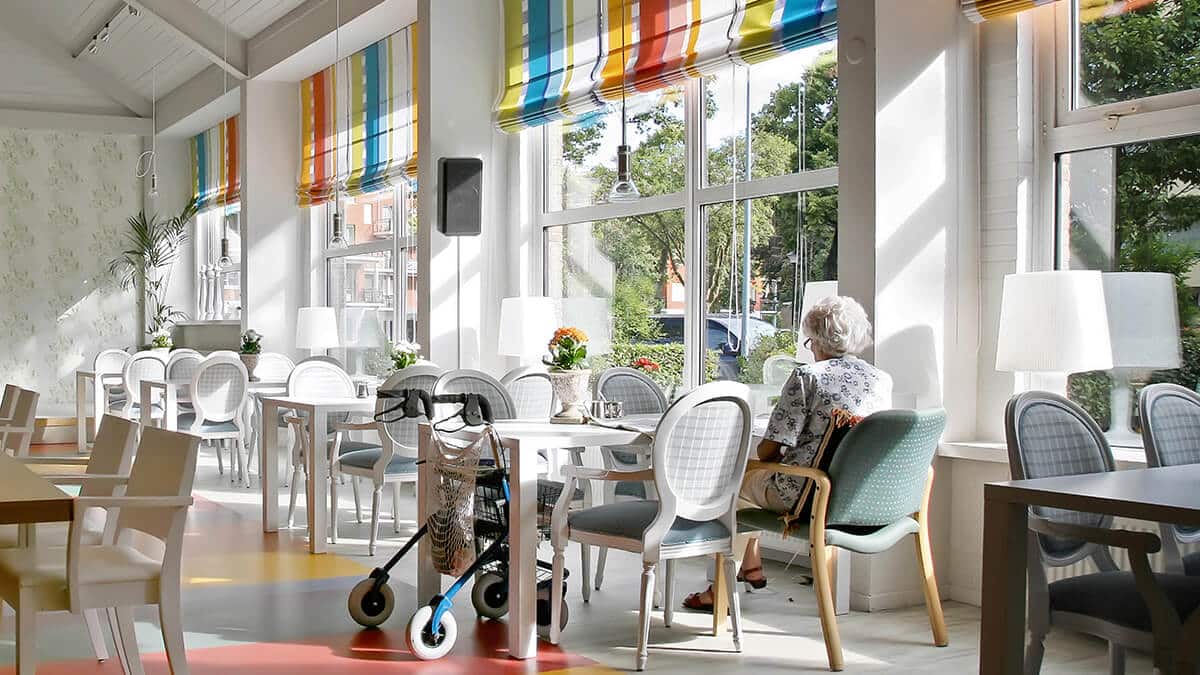In this video interview Bina Brown, Director of Third Age Matters, explains how residential aged care works, what are the typical wait times and costs, and what you should consider when choosing a residential aged care facility.
Transcript
How does residential aged care work?
If you’re thinking you might need to go into a residential aged care, then again there’s a number of steps you have to take. You have to be assessed by the aged care assessment team as being eligible to receive subsidised aged care.
Then you have to find a place where you’re going to be happy, whatever that means to people, whether it’s near family or a place that you know or a place that you know you’ll be well cared for.
Then Centrelink gets involved and a lot of people have never had anything to do with Centrelink. They do an income and assets assessment to determine what you will pay towards your care. So the government pays the bulk of it, but they do ask that if you can afford it, then contribute.
What are typical wait times for residential aged care?
It really depends on the facility but generally a bed will come up in 3-6 months. But if you’ve really in real need of residential care and the wheels are falling off at home or in your own home, then an aged care facility will definitely bump you up the list. They’ll triage you to make sure that you get the care you need.
What are typical costs for residential aged care?
The cost of aged care is a great concern to a lot of people – rightly or wrongly. How it’s set up is there used to be what they call a bond. That’s been replaced by what they call a refundable accommodation deposit, which is the market price that aged care facilities put on a bed or a room in a facility. And how they determine that is roughly around the property prices of the cities.
So you’ll see some rooms in say Sydney might be $1 million. In Brisbane slightly less – maybe $500,000-$550,000. In Canberra, the average is probably about $500,000 and people look at those figures and just think, well, there’s no way I can afford a room in an aged care facility.
So what the government did was gave people options of how to pay for that. So if you don’t pay that whole refundable accommodation deposit, you are charged what they call a daily accommodation payment, which is essentially a daily interest rate, which is at a rate set by the government.
And that rate is currently 4.98% so there’s a bit of an incentive to put as much as you can towards that refundable accommodation deposit. But if you don’t have that money, then there’s this other option and you can pay a combination of both. So you could put as much towards that deposit as you like, or as little.
And then there’s some care fee elements – that’s just the accommodation. The care fee elements are comprised of the basic daily care fee, which is set at 85% of the Age Pension. And that covers everything from your meals to your laundry, to your care. All the basics, I suppose.
And then there’s a means-tested care fee, which is asset and income tested by Centrelink, and that determines the proportion of your care that you’ll pay and the proportion that the government will give the care facility to look after you.
And then there’s one extra service that can apply to facilities and it’s called an extra services or additional services fee. It’s got nothing to do with your care, but it’s all about a hotel-like services that are in a facility and they can range anywhere between $10 and a $100 a day.
What should you consider when choosing a residential aged care facility?
Well, an interesting thing that has happened in aged care is that facilities have really spruced themselves up. So you know the vision – images of aged care facilities in the 70s and 80s is long gone and so you walk into some really spectacular-looking buildings now and I guess you’ve got to see through a bit of that because what you’re really there for is the care and the overall experience so that people know as soon as they walk in the door whether or not it’s the right facility for them. That would be my observation of when I walk around with clients all the time.
But there are some key questions. The first thing to know would be whether or not they’d been sanctioned and sanctioned is actually when they haven’t met some fairly basic standards of care and administration. If they’ve been sanctioned, what have they done to make improvements and lift their act.
But yes, it’s good to always have a really good look around. People say they can tell by the smell of the place whether or not it’s being run well. And you can generally tell by the demeanor of the other residents whether they’re happy with the staff – talk to residents, that sort of thing. It’s a very, very subjective thing, very hard for people to make that call. But they seem to know.
